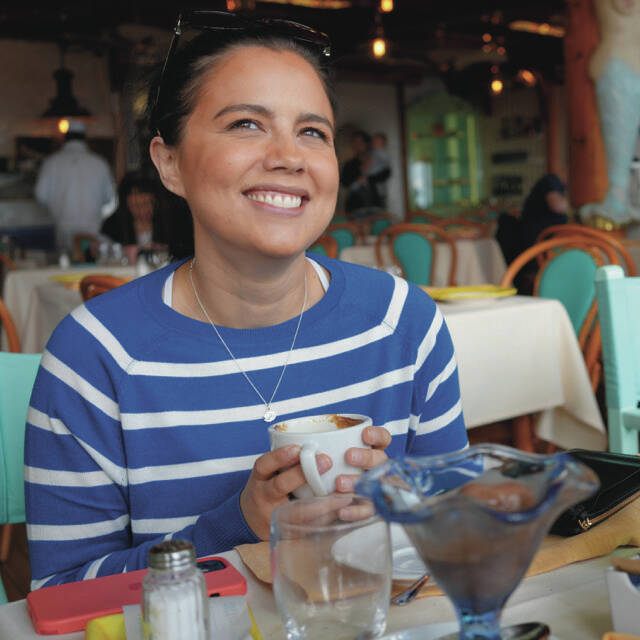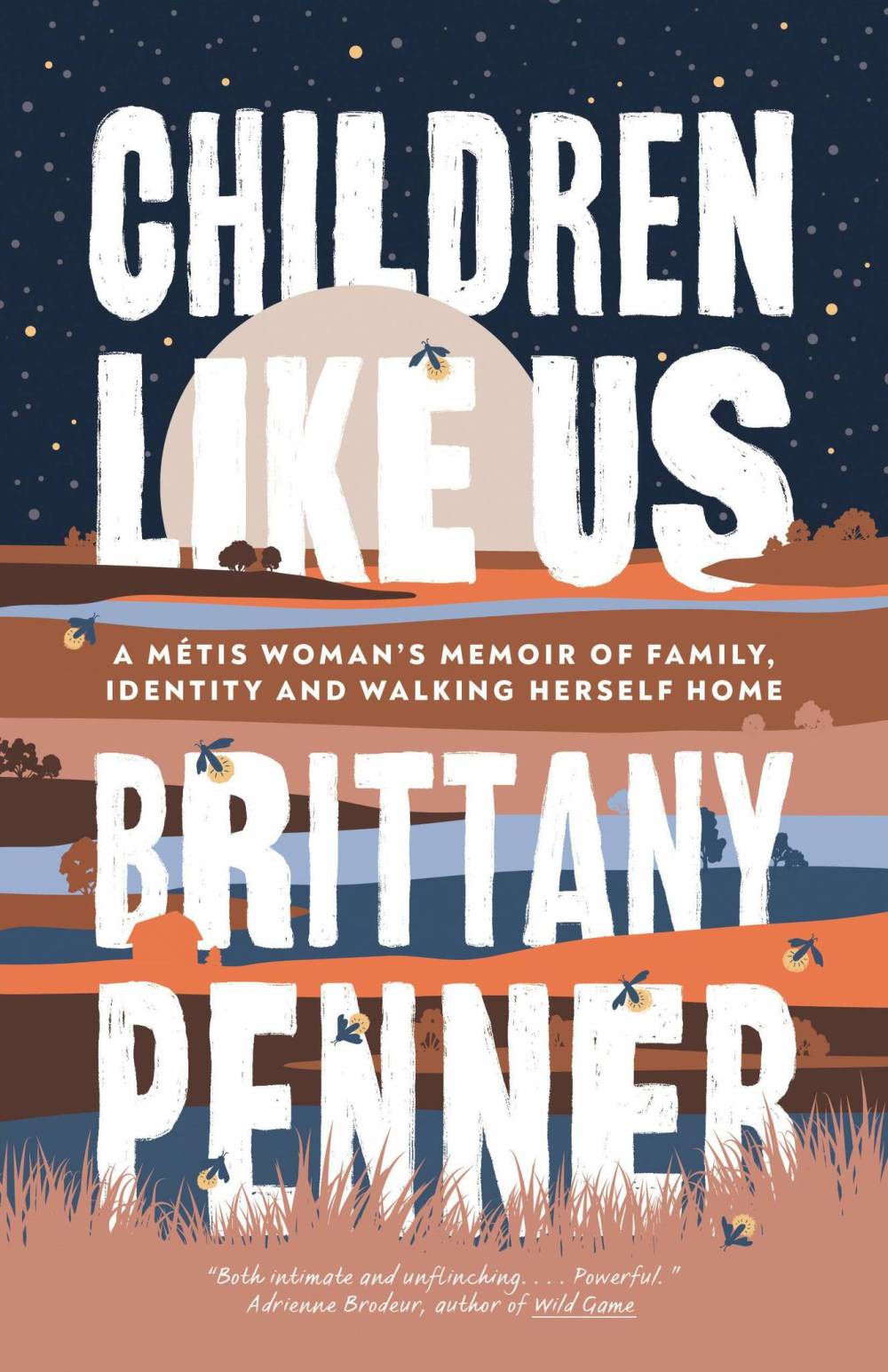A separate peace
Raised in a Mennonite community, Métis adoptee searches for a sense of self — and her biological family
Advertisement
Read this article for free:
or
Already have an account? Log in here »
To continue reading, please subscribe:
Monthly Digital Subscription
$1 per week for 24 weeks*
- Enjoy unlimited reading on winnipegfreepress.com
- Read the E-Edition, our digital replica newspaper
- Access News Break, our award-winning app
- Play interactive puzzles
*Billed as $4.00 plus GST every four weeks. After 24 weeks, price increases to the regular rate of $19.00 plus GST every four weeks. Offer available to new and qualified returning subscribers only. Cancel any time.
Monthly Digital Subscription
$4.75/week*
- Enjoy unlimited reading on winnipegfreepress.com
- Read the E-Edition, our digital replica newspaper
- Access News Break, our award-winning app
- Play interactive puzzles
*Billed as $19 plus GST every four weeks. Cancel any time.
To continue reading, please subscribe:
Add Winnipeg Free Press access to your Brandon Sun subscription for only
$1 for the first 4 weeks*
*$1 will be added to your next bill. After your 4 weeks access is complete your rate will increase by $0.00 a X percent off the regular rate.
Read unlimited articles for free today:
or
Already have an account? Log in here »
The notion of separateness is not foreign to Manitoba physician and author Brittany Penner. In her memoir Children Like Us: A Métis Woman’s Memoir of Family, Identity and Walking Herself Home, the quest to know and be known is all-consuming. Her separateness leads to a constant state of dissonance, one where she wrestles with a disconnect from her past, her identity and perhaps a sense of love. For, as she ponders, “If I could make sense of my story, find a reason for it, maybe I’d find a sense of belonging too. Maybe this book could give me that.”
Born in the early 1990s, Penner’s biological mother would or could not care for her new daughter — a tension that is an omnipresent undercurrent of the book — and she was adopted by a young Mennonite couple. Penner would spend her life growing up in a southern Manitoba family, disconnected from her Indigenous birth mother, family and community.
The Penner family, both immediate and extended, are fully committed to adopting and caring for children within the child welfare system. As the author tragically remarks, “In total, I will have twenty-one foster siblings before my seventh birthday. Everyone of them will be Native.”

Michael Maren photo
Born in the early ‘90s, Brittany Penner’s biological mother would or could not care for her, a tension that is an omnipresent undercurrent of her memoir.
And through this stark reality, Penner learns early on what many children in the care of Child and Family Services (CFS) know and believe: “we are the children people do not want around. Our lives are moveable. Transferable. An inconvenience that requires a solution.” The constant movement of young children into the family’s Manitoba farmhouse — one founded on a home life filled with an angry, detached father and a faith rooted in guilt — creates this sense of otherness or separateness.
Penner eloquently unpacks her fear of being the next child to be taken away by CFS — a tangible feeling that manifests and perpetuates itself within the confines of a family that, save for her grandmothers (central figures and a matriarchy that will become pillars in her journey), struggles with expressing love.
But there is perhaps some caution that should be heeded in Penner’s quest to overcome separateness. The very title of the book Children Like Us suggests her experience is like that of others — other adopted children, other children in care, and/or other Indigenous children. Penner’s pain and separateness are certainly symptoms and scars of colonial and genocidal policies in this country, although readers might question how her experience is parallel to those who are in and out of countless settler families and group homes, and who are fundamentally alienated from society, school and community. Penner reveals that “I am in constant search of a story, of a narrative that feels whole and truthful and that helps me understand my family and my place in it.”
There is a detachment in her heart, and a need to attach to a narrative.
As she becomes older, Penner’s relationship with the church, her parents, and the rural community leads her to medical school, Winnipeg, and eventually a reconnection with her biological mother. She notices for the first time the impact of racialized poverty, not only at Health Sciences Centre, but also in her new community. On the streets of Winnipeg, the impact of 200 years of genocide cannot be escaped.
Penner’s reconnection with her mother and family is also fraught with a separateness, traced by Penner with an elegance which speaks to the notion of not being wanted, or questioning why her biological parents saw something wrong with her. Coupled with this is a deep struggle to reconcile her identity. “My two worlds, my identities, my cultures, are colliding, and I have no idea how to piece them together,” she writes.
Although members of her biological family caution her to move carefully and not mislead, the search for belonging has at times felt disconnected from culture, land and language. Penner reflects on what it means to receive her Manitoba Métis Federation (MMF) card without the depth of lived experience, acknowledging both the questions this raises and the significance it still carries. For her, the card represents one step in a broader process of reclamation — a pursuit to be known, to be loved and to live with purpose.

Children Like Us
It is, in itself, a meaningful and worthy journey.
Matt Henderson is superintendent of the Winnipeg School Division.
Brittany Penner will be appearing at the Voices in the Circle event alongside Griffin Bjerke-Clarke, jaye simpson and katherena vermette on Wednesday at 7 p.m. at the Rachel Browne Theatre (211 Bannatyne Ave.) as part of Thin Air Winnipeg. Admission is pay what you can, with a suggested contribution of $15. For more information and to buy tickets, see wfp.to/iJM.


